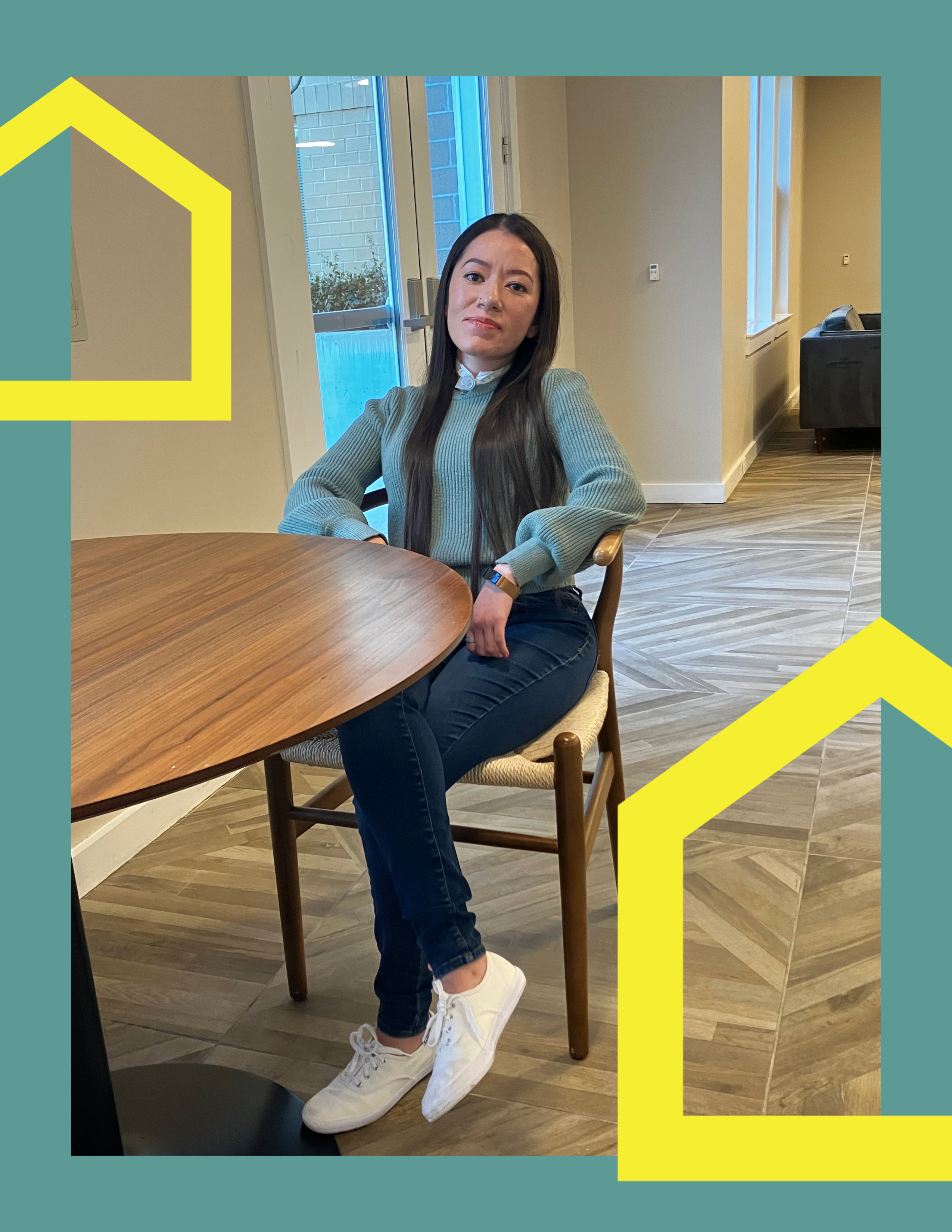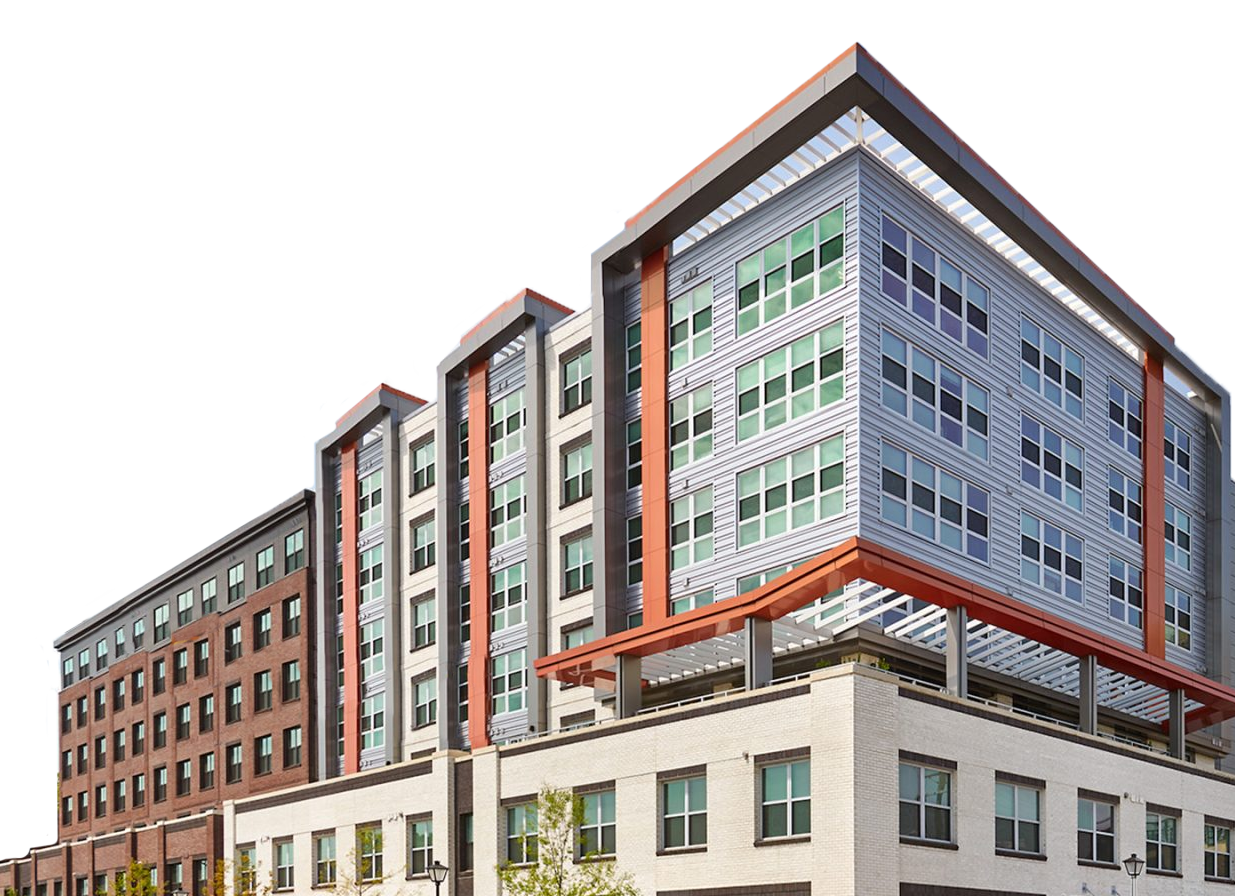“It’s All About Understanding People”
This blog post is the third blog post of the Housing Alexandria Stories campaign, the purpose of which is to celebrate our residents and share their stories in order to create more recognition and appreciation in our community as well as to strengthen Housing Alexandria’s ability to raise money to provide life-changing services to our residents through our resident services programs. This blog post was based on an interview with Stephanie(she/her), a Housing Alexandria resident.
Stephanie is a Housing Alexandria resident who has battled with a disability for most of her life but has used her experiences as a motivation to truly understand and care for those in her community.
Stephanie was born in Alexandria and grew up in a Salvadoran family. She describes that she grew up in a great neighborhood with good schools. When she was 13 years old, she had a health emergency and ended up in the hospital for two months. It was at this time that she was diagnosed with Congenital Muscular Dystrophy, or CMD. CMD affects almost every part of the body and generally causes muscle weakness, which leads to symptoms such as difficulty with stairs, long walks, and any type of physical exertion, as well as shortness of breath and difficulty fighting sickness. Stephanie had previously experienced many of these symptoms, but her mother was unsure of how to help her. Doctor’s appointments were difficult because of her mother’s language barrier, which Stephanie felt led to medical professionals distrusting her mother. Before then, it often took longer than typical for them to get care. Stephanie’s mother did all she could to take care of her, but Stephanie learned at a young age that sometimes she needed to be the one to take the initiative and stand up for herself. Her familiarity with standing up for herself has empowered her to stand up for others throughout her life as well.
Stephanie’s mother instilled in her the value of community through making friends in their church community and with other people who would accept them. Because of her upbringing and her condition, finding people who accepted her and making other people feel accepted, included, and cared for was important to Stephanie from a young age. At school she developed a career interest in nursing and joined the Medical Explorers club at her school to learn more about nursing and to make friends. She always wanted to make sure that people had their needs met and were taken care of, and she saw medicine as a way to do this. She went on to get an associate’s degree in science from NOVA, but sadly CMD has made it so that she cannot work professionally. She has since found community interacting with and supporting people with her same condition. She volunteers and attends support groups for the Muscular Dystrophy Association and for CureCMD, which are organizations dedicated to helping people who have muscular dystrophy. She also does regular speaking engagements for these organizations. Last year she did eight speaking engagements in which she talked about Muscular Dystrophy and the need to care for people with this disease. She doesn’t do these things out of a sense of duty, but because she really loves doing them. She says that she doesn’t feel shame about her disability, and that she has “no problem speaking to strangers that she doesn’t know” about her story because, as she says, “My story is what I know; it is what I am confident in.” She believes that helping people to be more human and more understanding through sharing her experiences adds meaning to her life.
“My story is what I know; it is what I am confident in.”
Stephanie believes that her disability has been a “very good thing” for her and has made her a “much better person.” Since she knows that she could have to go to the hospital at any given time due to her disability, she has learned to live in the moment and take life slowly. She enjoys being creative, and has dabbled in modeling, writing stories and blogs, and posting on social media. She likes to take advantage of all resources and accommodations that are available to her both because she feels like she deserves them, and because she sees accepting resources as a way to help others help her and other people with conditions like hers. She also wants to make sure that her neighbors’ needs are met. Her experience has shown her that, even when people try to make spaces more accessible, they don’t always get it right, and so disabled people need more allies and advocates to communicate their needs. Stephanie observes that there are so many conditions in the world, and everyone experiences them differently, so she wants to understand what people’s experiences are in order to understand their needs. She says that “It is all about understanding people,” and that it is important to see how people’s circumstances affect them because “you could be in their position someday.”
Before moving into a Housing Alexandria property, Stephanie lived with her family in a unit that was not accessible to individuals with disabilities. She struggled with several things, including stairs, the height of the microwave and kitchen cabinets, and feeling stable while using the restroom. She specifically remembers scratching up the walls with her breathing machine. Her unit also had a pest problem, which was especially difficult for her because getting sick affected her body more severely than other people. She did research to find a new place to move to with her sister, and she wanted to stay nearby because familiarity was important to her. She soon found Housing Alexandria and saw that she and her sister would be able to afford the rent in the Housing Alexandria units. They applied and were soon accepted into a disability-accessible unit, and they moved in soon after. She says that she is “so lucky” that she was able to move into her unit. Her new home doesn’t cause her any pain or discomfort. She doesn’t have to use stairs, the microwave and cabinets are low enough for her to reach easily, and there are grab bars to support her in her bathroom. It meets her needs and even gives her freedom to be independent, since the pharmacy, the grocery store, and a restaurant are on her same block and don’t take much energy to get to. This independence has helped her to build confidence. She said that after long trips she feels truly happy to be home in a place where she can be comfortable. She believes that everyone should have a place where they can just be.
According to Stephanie, “We can all agree that making a living and being able to afford a place is hard,” and she also believes that “Anybody could be in a situation [where they need affordable housing].” Her experiences have shown her that some people are in a more difficult position to make a living and to find accessible housing, and so they have greater need for help with their housing. She is thankful that Housing Alexandria helps people to not only live in a place where they can be comfortable within their budget, but also that they provide connection for people in their community by reaching out to them and caring about them, and also empowering them to make more of their situation and even think about owning a home in the future. She believes that these things give people hope.


